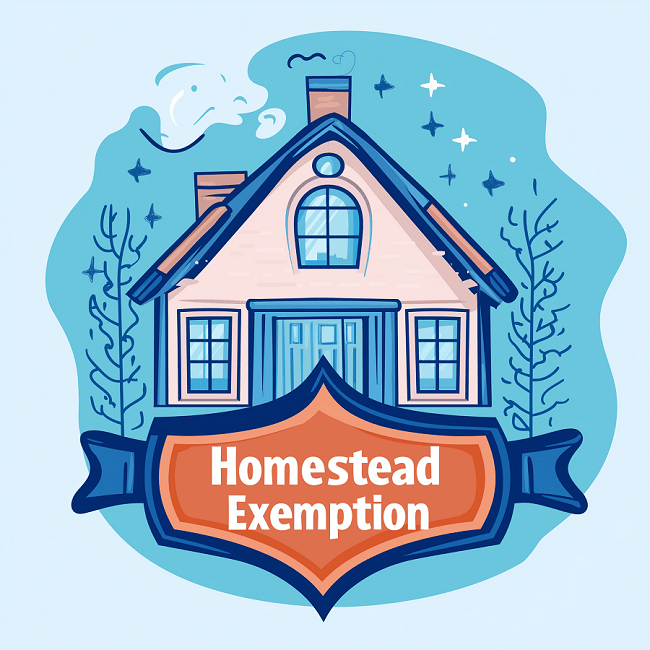When it comes to taxes and trusts, the average person may not know much about the basics. Much of what goes into the financial side of life is a mystery to people who work in a different industry. There are new IRS rules that limit the types of deductions an irrevocable trust can take, but there are still some significant deductions that you must not overlook.
The IRS allows an estate or trust to deduct depreciation, depletion, and amortization on from 1041. Additionally, the IRS also allows other limited deductions that can significantly reduce your estate or trust’s tax burden.
It can be challenging to get direct answers from financial advisors, and many require an hourly fee to even speak to them. Hopefully, this informative article will help you get clarity on the kinds of tax deductions that could benefit you that you may be unaware of. Don’t forget, knowledge truly is power.
Estate Tax Deductions, Briefly
The Internal Revenue Service usually treats an irrevocable trust as a separate entity from the trustor (or grantor) who creates it. Thus, these types of irrevocable trusts are required to obtain their own tax identification number.
Additionally, irrevocable trusts need to file in an income tax return each year. You need to file a trust income tax return on Form 1041. As discussed below, the trust tax brackets are higher than individual income tax rates.
As a result, most CPAs recommend not retaining any income in an irrevocable trust because it will be taxed at the highest tax bracket.
Luckily, if you need to retain income in an irrevocable trust, there are so many federal estate tax deductions that can dramatically reduce your tax burden. They are:
- Tax Preparations Fees;
- Appraisal Fees;
- Attorney Fees;
- Trustee Fees; and
- Other “common” or “customary” fees associated with administering the particular assets in an estate.
- Depreciation
- Depletion
- Amortization
- Rental Losses
- Investment Portfolio Expenses
- Business Interest
- Investment Interest
- Qualified Residence Interest
- Investment Advisory Fees
- Bond Premiums
- Theft Losses
- Income Distribution
- Qualified Mortgage Insurance Premiums
- Cemetery Perpetual Care Fund
- Estate Taxes
- Charitable Deductions
Each of these deductions have limitations and special rules to follow in order to qualify for them. I will discuss each of these deductions in depth below. So keep reading to save some money.
When Do You Need to File Form 1041?
To understand Form 1041, you need to understand the difference between a revocable and irrevocable trust.
An irrevocable trust, by its very definition, cannot be revoked or changed at any point except by court order or (in some cases) consent of all the beneficiaries. Irrevocable trusts have the most tax benefits for estate planning purposes.
Irrevocable trusts are often used to move their assets out an estate. For example, if your estate is too big to qualify for Medicaid, you can create an irrevocable trust to hold your asset. Then after the relevant Medicaid look-back period, you can qualify.
Additionally, an irrevocable trust helps protect estate assets from judgments and creditors. So it is an excellent asset protection tool.
Irrevocable trusts can also take advantage of the federal gift tax to maximize the benefits to your beneficiaries.
But, as stated above, some irrevocable trusts need to file a tax return. If the grantor of the irrevocable trust retains the power to control any of the trust assets, then it is a “grantor” trust and will be treated as a disregarded entity by the Internal Revenue Service.
If you would like to learn more about disregarded entities, check out my article called “7 IRS Rules that Make Your Trust a Disregarded Entity.”
Thus, you will need to file Form 1041 if you do not retain any power to control the assets in your irrevocable trust.
The difference between an irrevocable trust and a revocable living trust, is you can revoke a revocable trust. Surprise surprise.
Additionally, while an irrevocable trust may be created for a variety of asset protection and federal benefit qualification purposes, a revocable trust is almost always designed to avoid probate as well as provide tax benefits after the death of the trustor (grantor).
Moreover, a revocable trust is a grantor trust. This means it does not need to file a tax return. But, on the death of the trustor (or grantor) the revocable trust becomes irrevocable and will need to start filing Form 1041.
Whichever trust you choose, creating a trust with an advisor can be a time-consuming and potentially confusing experience. If you are confused, do not worry; you do not lack intelligence in the slightest. Heck, I’ve been doing this 10-years, and I still get confused! It’s okay.
So, if you have a trust that needs to file a 1041 return, let’s look at all of the deductions you can take to minimize your tax burden.
Federal Estate Tax 101
Most irrevocable trusts an individual tax identification number. If you have a revocable living trust, you can use your social security number. But once your revocable living trust becomes irrevocable (at the death of the grantor), then the trust will likely need to obtain a tax identification number so that the trust or estate can file its tax return.
Generally, an irrevocable trust is taxed based on the 1041 tax return. You must report any income received by a trust or estate to the Internal Revenue Service. Even the smallest estate generating insignificant trust income can produce a considerable amount of paperwork.
Irrevocable trusts often mandate required distributions of income to the trust’s beneficiaries. This is because the trust tax brackets are some of the highest in the country. For example, an individual making over $12,750 per year is in the 12% tax bracket.

Here is a chart of the individual income tax rates:[i]
|
Trust income over: |
But not over: |
Tax is: |
Of income received over: |
|
$0 |
$9,875 |
10% |
$0 |
|
$9,875 |
$40,125 |
12% |
$9,875 |
|
$40,125 |
$85,525 |
22% |
$40,125 |
|
$85,525 |
$163,300 |
24% |
$85,525 |
|
$163,300 |
$207,350 |
32% |
$163,300 |
|
$207,350 |
$518,400 |
35% |
$207,350 |
|
$518,400 |
— |
37% |
$518,400 |
Thus, as you can see, a person with an income of $12,751 would pay $1,332,62 in individual income taxes.
But, a trust or estate with over $12,750 of retained income (meaning it did NOT distribute the income to the beneficiaries) is in the 37% tax bracket.[ii]
Here is a chart of the trust tax brackets:
|
Trust income over: |
But not over: |
Tax is: |
Of income received over: |
|
$0 |
$2,600 |
10% |
$0 |
|
$2,600 |
$9,300 |
24% |
$2,600 |
|
$9,300 |
$12,750 |
35% |
$9,300 |
|
$12,750 |
—- |
37% |
$12,750 |
As you can see, if a trust retains income received in a given year over $12,751, then it will pay $3,404.87 in federal estate taxes. That’s 250% more than an individual with the same income!
For this reason, most irrevocable trusts mandate required distributions to the beneficiaries. But if that is not possible, then irrevocable trust deductions are essential to preserving as much of the income as possible.
Luckily there are still significant deductions, which can provide amazing tax benefits.
Changes to Miscellaneous Trust and Estate Deductions Resulting from the Tax Cuts and Jobs Act of 2017.
You may have heard that the new tax law eliminates trust and estate deductions. This is only partially true.
President Donald Trump signed the Tax Cuts and Jobs Act of 2017, which added section 67(g) to the Internal Revenue Code. Section 67(g) says that you cannot take any miscellaneous itemized deductions on your estate (or trust) tax return until after 2025.[iii]
But some itemized miscellaneous deductions are still allowed. Some of the costs of estate administration are still deductible, for example:
- Tax Preparations Fees;
- Appraisal Fees;
- Attorney Fees;
- Trustee Fees; and
- Other “common” or “customary” fees associated with administering the particular assets in an estate.[iv]
Moreover, these deductions may be taken “above the line,” meaning they directly reduce an estate’s adjusted gross income. Furthermore, they are not subject to the 2% floor limitation, like other itemized miscellaneous deductions.
Thus, these deductions can help significantly reduce any federal estate tax owed.
Irrevocable Trust Deductions for Depreciation, Depletion, and Amortization
Generally speaking, some of the irrevocable trust tax deductions that you can on Form 1041 are pretty self-explanatory. The more you read about finance and how tax returns like 1041s work, the less intimidated you will be. It is important to be aware and not be too afraid of the process.
So let’s dive into the irrevocable trust tax deductions. The first three are always allowable. They are:
- Depreciation
- Depletion
- Amortization
Depreciation, Depletion, and Amortization are all fully deductible (on a pro-rata basis) on Form 1041.
Depreciation
Some assets, like homes, appreciate (meaning they increase in value) over time. But some assets decrease in value over time. This is called “depreciation.”
A typical example is an automobile. You may purchase a vehicle at a dealership for $20,000. As soon as you drive it off the lot, it is worth significantly less than $20,000. This is because cars depreciate very quickly.
If a trust or estate owns assets that have depreciated during the tax year, then it may deduct the depreciation on its 1041 Tax Form.
But, trustees, executors, and administrators (or their CPAs) must allocate the depreciation between the trust and its beneficiaries.[v] The deduction for depreciation is apportioned between the trust or estate and the beneficiaries, heirs, or legatees calculated by the income of the trust or estate allowable to each.
Depletion
If a trust owns natural resources, like oil, gold, gas, timber, etc., then it may be able to deduct for the depletion of those resources. As natural resources are used or mined, they become depleted. As a result, the asset (the mine, oil well, or other natural deposits) decreases in value. This is called “depletion.”
If natural resources are generating income, i.e., they are being mined or consumed, then a trust can is entitled to a deduction for depletion of those resources. [vi]
Just like, depreciation, the deduction is allocated between the trust or estate and the beneficiaries/heirs.
Amortization
Amortization is the process of accounting for an asset’s capital expenditure over its useful life. For example, if you buy a gold mine for $10,000, you may be able to deduct the cost of the gold min all at once. But, you can also amortize the expense of the gold mine over a period of years. This is called “amortization.”
If you elect to amortize capital expenditures, then the deduction for amortization is allocated on a pro-rata basis the same way as the deduction for depreciation and depletion, above.
Limitations on Irrevocable Trust Deductions
Certain deductions are allowable on an individual basis, but not allowed to a trust or estate. Additionally, some deductions are permitted but limited in scope. This section will discuss some of the limitations on irrevocable trust deductions.
Passive Activity
Trusts and estates are not allowed to deduct any loss or credit for income received through “passive activity.”[vii] The Internal Revenue Code defines “passive activity” as “any activity” “which involved the conduct of a trade or business and [] in which the taxpayer does not materially participate.”
Someone materially participates in a business if they:
- Participate in the activity for more than 500 hours.
- Your participation in the tax year was substantially ALL of the involvement needed for the company/activity.
- You participated in the activity for at least 100 hours, and your participation was at least as much as other non-owners who also participated in the activity.
- The activity is a personal service activity in which you participate for the three prior tax years.
- You participated for at least 100 hours and on a regular, continuous, and substantial basis during the tax year.
Thus, if a trust or estate is engaged in any trade or business where the trust or estate does not materially participate in the business, any losses or credits from that business are not deductible.
The rules regarding passive activity businesses are really complex, so be sure to seek proper legal advice to help you.
Rental Activities
In general, rental activities are passive activities. Thus, the general rule is that a trust or estate cannot deduct any losses associated with renting estate assets. But there is an exception.
If the grantor of the trust materially participated in the rental business before death, then an irrevocable trust can up to $25,000 of rental losses for two years following the grantor’s death.
After two years, the trust cannot deduct rental expenses.
Investment Portfolio Losses
Portfolio income and losses are treated as passive activities. Portfolio income is not considered passive income. But, some portfolio losses are considered passive losses. You cannot deduct passive portfolio losses to offset portfolio income. In addition, you cannot report passive portfolio losses on Form 1041. Instead, you need to use Form 8582.
Business Interest
You may take a deduction for a business interest expense.[viii] But the deduction is limited to the following:
|
Business Interest Income for the Tax Year +
|
|
30% of the Adjusted Taxable Income for the Tax Year +
|
|
The floor plan financing interest for the Tax Year = |
|
The maximum business interest deduction. |
But you can carry over any business interest deduction exceeding this limitation to the following tax year.
Investment Interest
If you take a loan to purchase an investment for the trust or estate (such as a vacant lot to develop), then you may deduct investment expenses after 2025 and only if allowed under 26 USC 67(e). Interest paid on the loan is not deductible as an investment expense. Instead, there is a more limited deduction for which you need to check box 10 on Form 1041 and also file Form 4952.
The exception to this rule, is interests paid for a qualified residence.
Qualified Residence Interest
If a trust or estate buys or owns a home that is either the principal residence of a present beneficiary or a secondary home selected by the beneficiary, it is a “qualified residence.”
Any interest paid by the trust or estate on a loan for a qualified residence CAN BE deducted.[ix]
Other Deductions
Unfortunately, medical and funeral expenses are not irrevocable trust tax deductions on a 1041, so keep that in mind. However, there are ways to take those deductions. For example, you can medical expenses of the decedent paid by the estate on the decedent’s personal income tax return. Funeral expenses can be deducted on Form 706.
There are some other irrevocable trust deductions that may help further reduce the tax burden to the trust or estate.
- Investment Advisory Fees
- Bond Premiums
- Theft Losses
- Income Distribution
- Qualified Mortgage Insurance Premiums
- Cemetery Perpetual Care Fund
- Estate Taxes
- Charitable Deductions
Investment Advisory Fees
Fees for investment advice are not deductible. But, specific incremental costs of investment advice over and above the amount ordinarily charged to individual investors are deductible.[x]
For example, some investment advisors charge an extra fee for investment advice provided to a trust. These extra fees are deductible.
Bond Premiums
You can deduct the bond premiums for taxable bonds acquired before October 23, 1986. But nontaxable bond premiums and taxable bond premiums for bond acquired after October 23, 1986, CANNOT be deducted.
Theft Losses
If property owned by the trust is destroyed or stolen, you can deduct the fair market value of the property as a theft of casualty deduction. To claim this deduction, you need to use Form 4684.
Qualified Mortgage Insurance Premiums
If you have financed a qualified residence (see above) and if your down payment was less than 20% of the purchase price, then there is a good chance you are paying mortgage insurance premiums.
Your mortgage insurance premiums may be deductible.
If the trust’s adjusted gross income is less than $100,000, then you can deduct all of the mortgage insurance premiums paid by the trust.
If the trust’s AGI is between $100,001 and $108,999, then you may still deduct a portion of the insurance premiums.
But, if your trust’s AGI is over $109,000, then you CANNOT deduct mortgage insurance premiums paid by the trust.
Income Distribution
Trusts which are required to distribute income can claim a deduction for the amount of income paid to the beneficiaries on Schedule B to Form 1041.
Additionally, if you distribute income from a trust into a pooled income fund, then you can still deduct the income distribution payments. Still, you need to attach a separate statement to Form 1041, supporting the computation of the income distribution deduction. (See Form 5227).
Cemetery Perpetual Care Fund
You are allowed to deduct up to $5 each year for fees paid for the maintenance of cemetery property.
Estate Taxes
In some cases, a portion of the estate tax paid can be deducted on your estate tax 1041 return.
If you include “income in respect of a decedent” in the calculation of the gross income of the trust, then that same year, you can deduct the portion of the federal estate tax (including the generation skipping transfer tax) attributable to the income in respect of a decedent.
For examples illustrating how this deduction works, check out the Internal Revenue Service Regulation § 1.691(c)-1.
Charitable Deductions
Generally, charitable donations form a trust are not deductible. But, the donation of assets (or income from assets) transferred to an irrevocable trust before October 9, 1969, can be deducted.[xi] To qualify, the trust must irrevocably dedicate the asset(s) or income from the asset(s) to charitable purposes.
If a trust qualifies, then the trustee or his/her accounting firm or CPA can deduct any gross income or capital gains donated to a charity.
There are different rules for trust funds held by a charitable remainder trust. If you have a charitable remainder trust, the income it receives is generally tax-free. But, if the charitable remainder trust has any business income unrelated to the charitable work (i.e., a book store or coffee shop), then it needs to file Form 4720.
The only real way to deduct payments of trust income made to charitable organizations is to create a charitable lead annuity trust. A charitable lead annuity trust is like a charitable remainder trust but in reverse.
With a charitable lead annuity trust, income received by the trust if guaranteed to a charitable organization for a period of time. After that time is up, the remaining trust funds go to noncharitable beneficiaries (e.g., heirs and other devisees).
The rules for creating a qualified charitable lead annuity trust are complicated, so seek the advice of a qualified estate planning law firm, and they can help set it up for you.
Sources for Learning About the Estate Tax Filling Requirements
Irrevocable trusts can be complicated when it comes to filing taxes, and many people require an accountant to fill out their 1041 because it is so complicated. However, I recommended that you read as much as you can on the subject of estate taxes, so you are aware of how the tax return works or want to fill it out yourself.
The Internal Revenue Service instructions on Form 1041 has some great content to help you understand each of the deduction allowed and what types of trust income you need to report on Form 1041. You can view the instructions by clicking HERE.
Conclusion
In short, irrevocable trust deductions in some ways are intuitive once you understand how a trust works. People create trusts for all sorts of reasons, the most important one being that they want to protect assets for future generations.
An irrevocable trust is an excellent way to do that. But before taking out your pen and irrevocably dedicating your assets to your children, seek out an experienced estate planning attorney and tax professional.
Irrevocable trusts have unique accounting requirements, so professional CPAs and other accountants can be your best friend. Not only can they help you understand the filing requirements, but they can also help you develop an effective tax planning and estate planning strategy.
Whatever you decide, don’t forget the advice in this article, namely that knowledge makes you a step ahead of the game. With knowledge comes power over your financial future and life in general. Happy Planning!
[i] “2020 Tax Brackets” by the Tax Foundation
[iii] 26 Internal Revenue Code § 67(g).
[ix] IRS Publication 936 (2019)
[x] 26 CRF § 1.67-4(b)(4)




